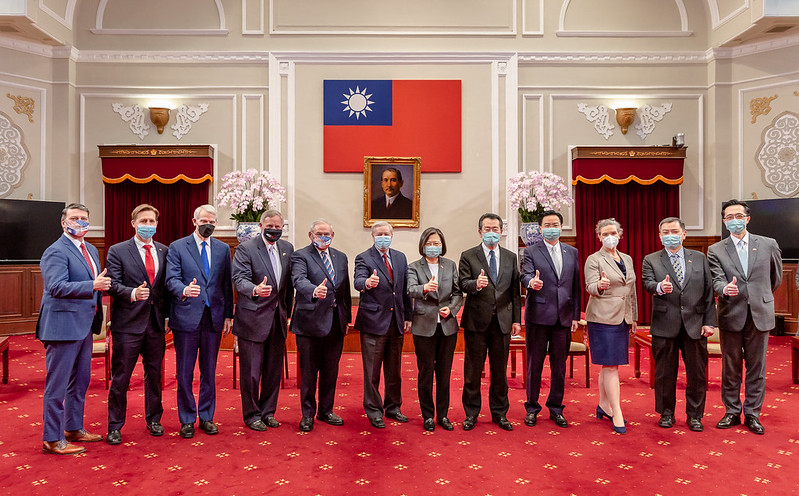(TAIPEI CITY, Taiwan)—Taiwanese people have long believed that the American Republican Party provides more support to Taiwan than the Democratic Party. If Republicans win the House majority in the midterm elections, House Minority Leader Kevin McCarthy is likely to be the Speaker of the United States House of Representatives — and many here think that would help Taiwan to strengthen its self-defense capabilities.
According to FiveThirtyEight’s latest predictions, Republicans have a slight edge over Democrats in winning the majority of the Senate and a more than 80% chance of winning the majority of the House.
The election is especially important here due to an expected vote on the Taiwan Policy Act of 2022, a measure introduced in September by Senate Foreign Relations Chair Bob Menendez, a Democrat, and Republican Sen. Lindsay Graham. While the bill has gathered bipartisan support, its fate before the end of the current congressional term in January is unclear.
There are several critical measures in the proposal, including providing Taiwan with nearly $4.5 billion in security assistance over the next four years, designating Taiwan as a “Major Non-NATO Ally,” and renaming “Taipei Economic and Cultural Representative Office” as “Taiwan Representative Office.” Experts say these measures would help Taiwan obtain more cooperation and support from the U.S. in arms sales and national defense and security.
“It is not as easy as imagined for Taiwan to get everything in the Taiwan Policy Act 2022,” Chen-Yuan Qiu, a Taiwan People’s Party legislator, told the Click. “Regardless of whether the act will be passed in the end, the United States has shown its attitude toward Taiwan relations at this stage.”
The bill was introduced in the Senate following a series of visits from U.S. congressional delegations including a bipartisan visit on April 14 and the Aug. 2 visit by Democrats led by Speaker of the House Nancy Pelosi, which drew the ire of China. In an op-ed for the Washington Post she wrote that her trip “in no way contradicts the long-standing one-China policy, guided by the Taiwan Relations Act of 1979, the U.S.-China Joint Communiques and the Six Assurances. The United States continues to oppose unilateral efforts to change the status quo.”
Six weeks later, the Taiwan Policy Act of 2022, cleared the Senate Foreign Relations Committee with a 17-5 bipartisan vote. Three Democratic senators and two Republican senators voted against it. It is not clear whether the whether it will advance after the midterm election, or if it would be signed into law by President Joe Biden.
If House Republicans win a majority on Nov. 8 and McCarthy becomes Speaker of the House again, Taiwan will have an ally who may be willing to challenge the status quo more than the current leadership. According to a recent article in The Hill, Republicans plan to set up a Select Committee on China “to tackle numerous bipartisan proposals including working with Taiwan to provide the independent island with more U.S. weapons as China bears down on Taipei with threats to bring it under Beijing’s control. “






